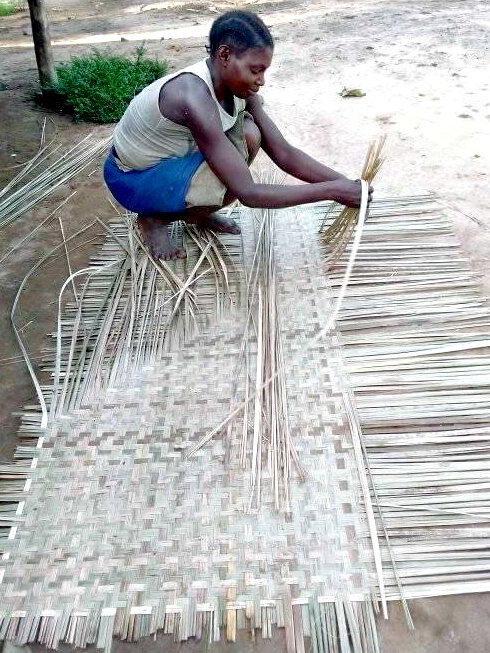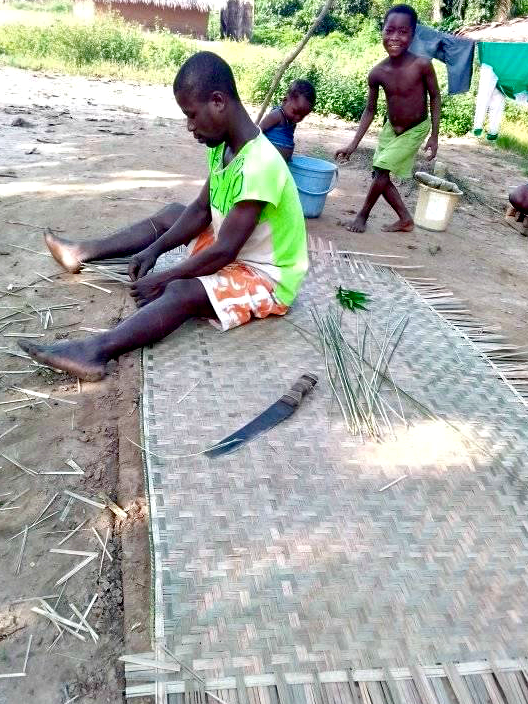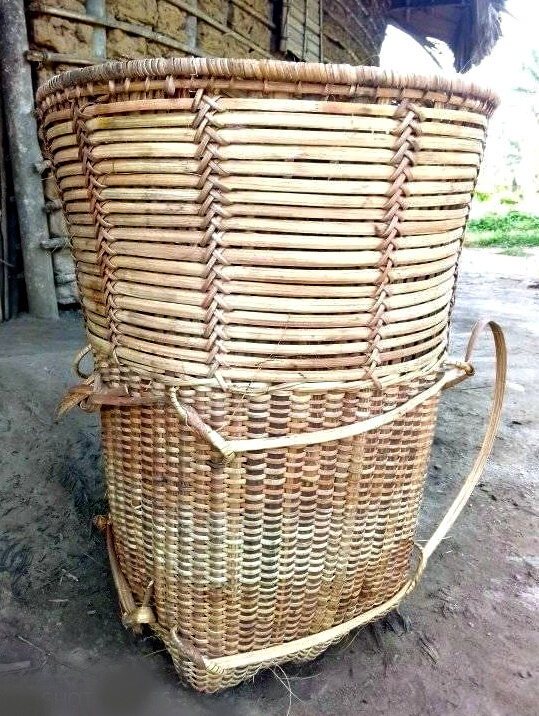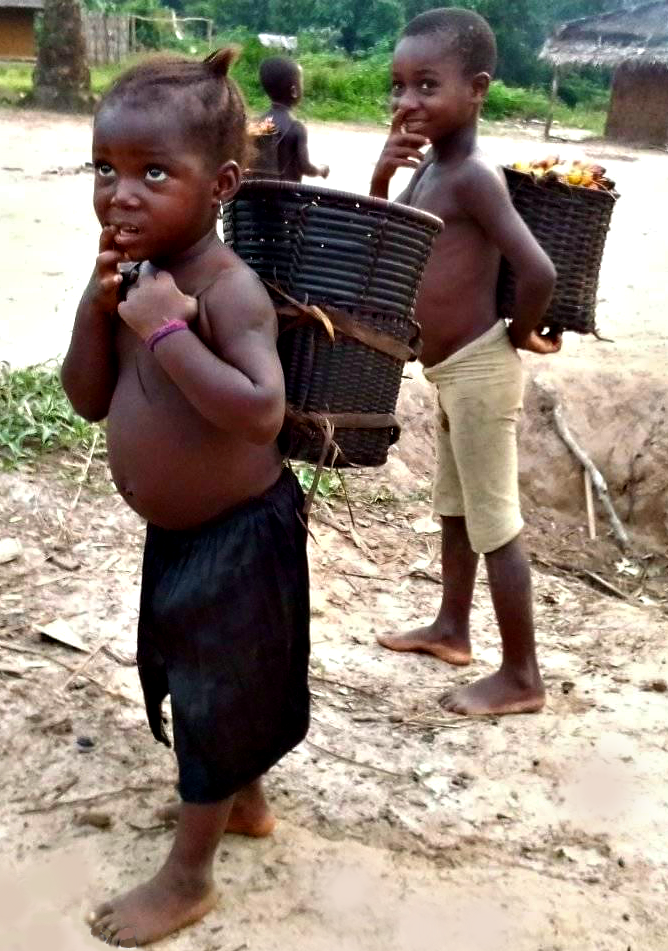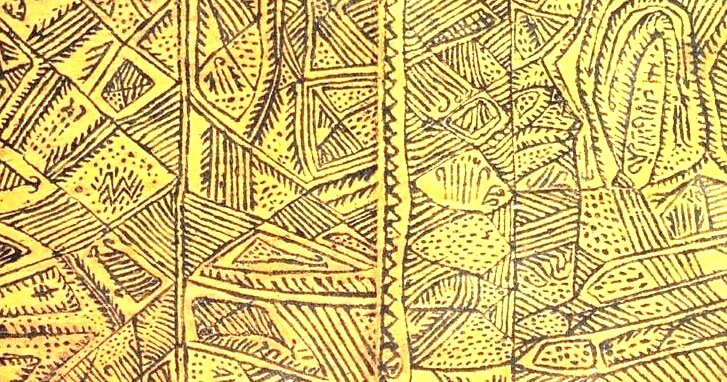
The Batwa
Keepers of the Forest
The Aboriginal People of Central Africa

The Batwa, also known as “Pygmies,” are the aboriginal people of central Africa. A large population of Batwa live in and around the villages we support, in the northern region of Lake Tumba, in the communites of Ikoko Boginda, Nkake, and Ngelo Monzoi, and in the southern Lokongo region.
The Batwa - and all Pygmy groups across central Africa - have survived by gathering forest foods such as fruit and wild yams. They also fish and hunt elephants, wild boar, and small bush antelope with spears, darts, and nets. A favorite food is honey, which they climb high into trees and brave many stings to obtain.
The Batwa are deeply connected to and protective of their forest home - the source of their lives, culture, and bodily sustenance for thousands of years. Anthropologist Jerome Lewis points out,”If you live in the forest as they do, and you’re only eating forest food, your body is literally transformed forest. Everything that composes your body has been taken from the forest. So you are the forest, in a very deep sense and a very real sense.”
The Batwa are known for their singing, which offers gratitude to their Forest Mother, through the mimicked sounds of winds, rains, birds, monkeys, and insects. Often the lyrics simply praise “the forest is beautiful.”
In order to protect their home, the Batwa have generated systems of strict adherence to conservation over many generations and thousands of years. Taboos exist around what may be hunted and when, who may hunt and how. At times entire areas of forest will go unvisited so the animals taken for sustenance may be allowed to rest and replenish.
The plight of not only the Batwa people, but all Pygmy groups, includes agricultural servitude to neighboring Bantu villagers, domination by industrialists, loggers, and conservationists who consider hunter-gatherers illegitimate squatters on government lands. Governments lease Pygmy territory to farmers, business people, and international NGOs, who expect property to be private, while Pygmy hunter-gatherers are fiercely egalitarian and believe in sharing. They have no chiefs - the role of men and women in their culture is equal. A deep clash exists between Pygmies and male-dominated societies and authorities who do not respect the Pygmy’s lack of concern for “strong male leaders.” Tragically, their voices usually go disregarded and unheard, and they are often evicted from their homelands without consent, compensation, or concern.
To make matters worse, governments and neighboring cultures consider Batwa life ways outdated and primitive, and pressure them to begin a settled way of life, and missionaries attempt to convert them to Christianity. Many Pygmy people are forced off of their ancient ancestral homelands, to squat at the edges of national parks from which they have been “exterminated,” deemed to be poachers - ironically, in order to protect what’s left of the natural world. Meanwhile, their ancient ancestral homelands are further degraded by logging, small farm clearing and intruding bushmeat hunters from cities. Left unable to find sustenance or protection within their forest home, they are often left with no alternative but to labor in fields, beg along roadsides, act as village servants or take menial jobs in cities.
It is widely known that discrimination against Pygmies exists wherever they live in Africa. While they live under extreme pressure to forfeit their ancient and traditional way of life, Go Conscious Earth understands the Batwa people to be true stewards and protectors of the Forest, and stands for the rights of aboriginal people everywhere to decide their own futures.
Go Conscious Earth advocates a 100% participatory approach in the development and establishment of each Community Forest Concession in which the Batwa people live. We will work diligently to ensure their voices are heard, and that they are thoroughly involved in efforts to improve their lives, while protecting their culture and their forest home.
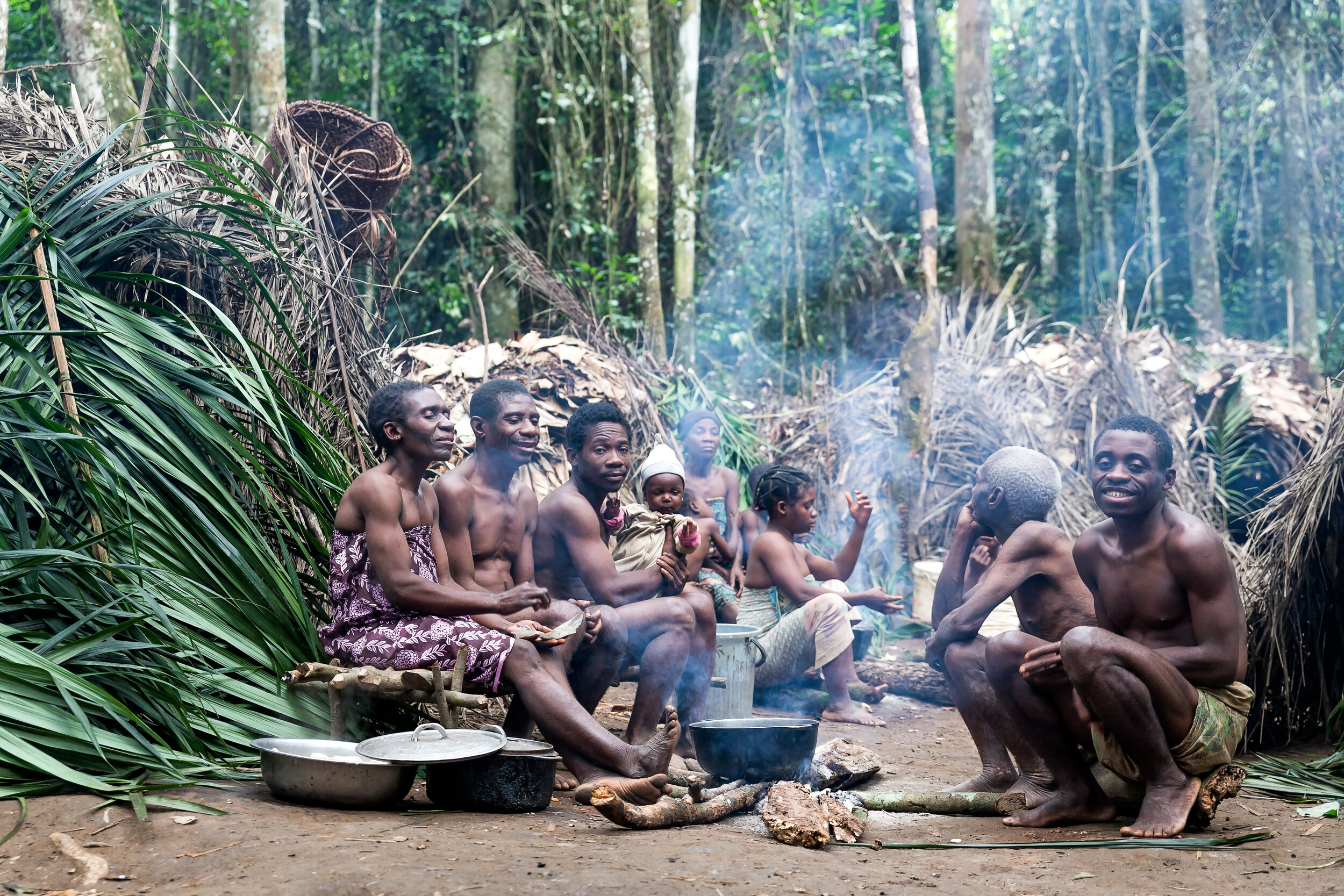
“Pygmies love the Forest as they love their own bodies.”
- Pygmy Proverb
The Batwa are skilled bark cloth printmakers, mat and basket weavers, creating artisan goods used in trade for cultivated foods and sale at markets. One can’t imagine how life might carry on without Batwa baskets, full as they are with the vital sustenance of cassava and yams, firewood, mushrooms and tree nuts, carried many miles from field, forest and camp heaped across the back of every villager.
